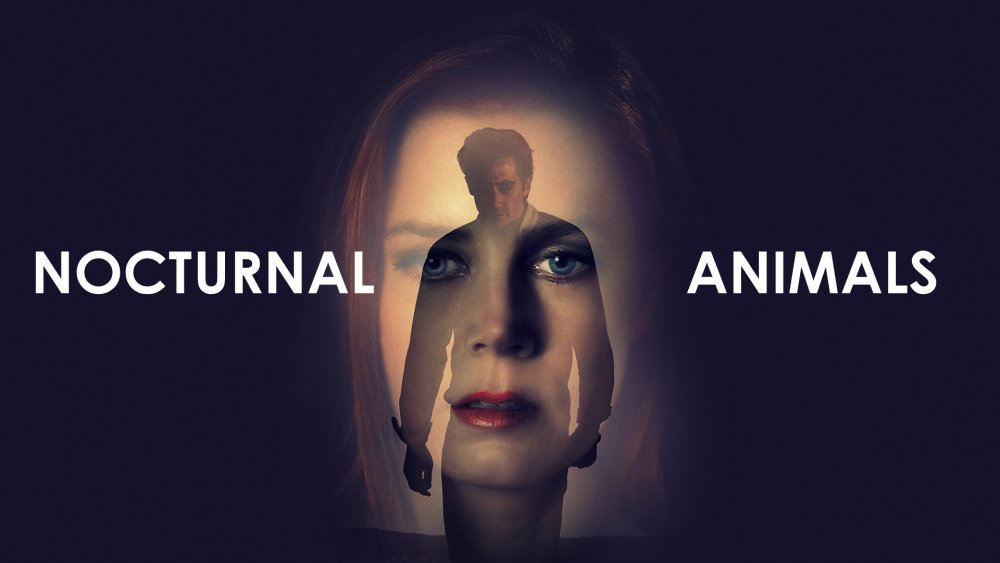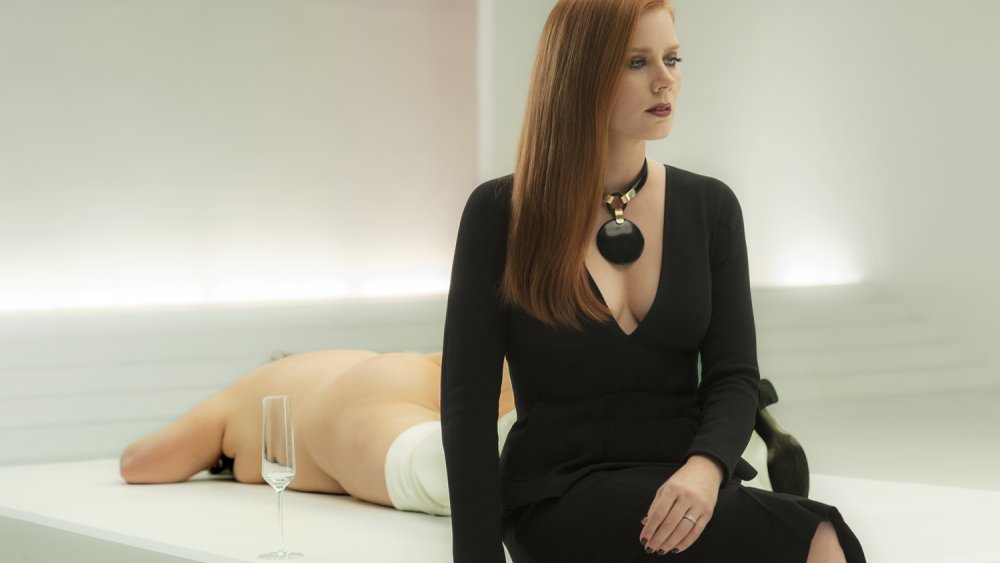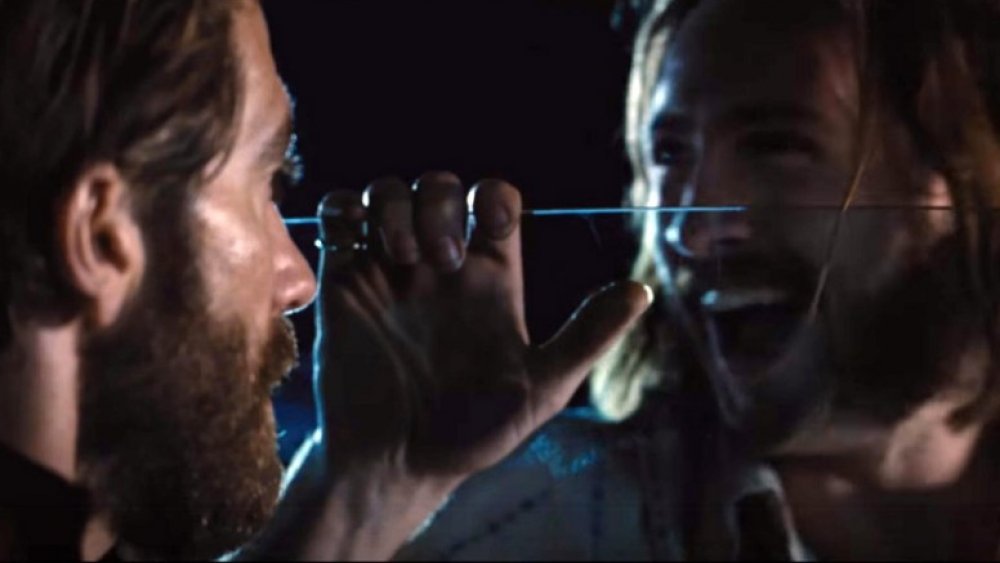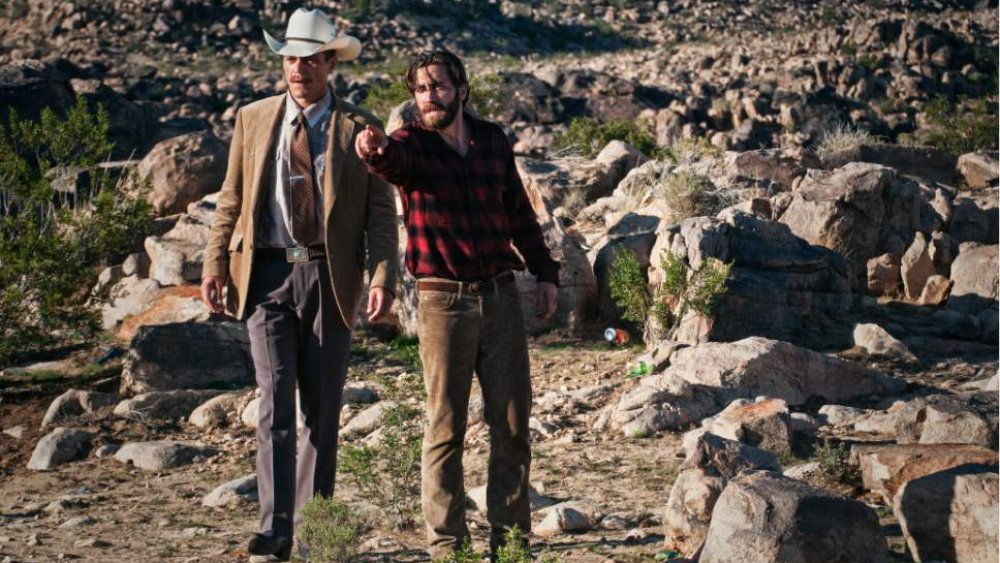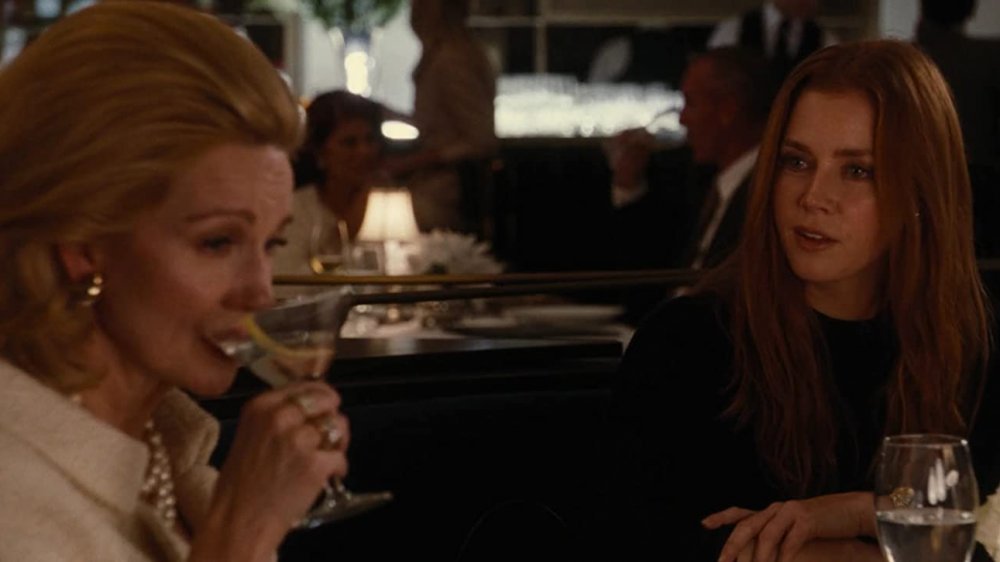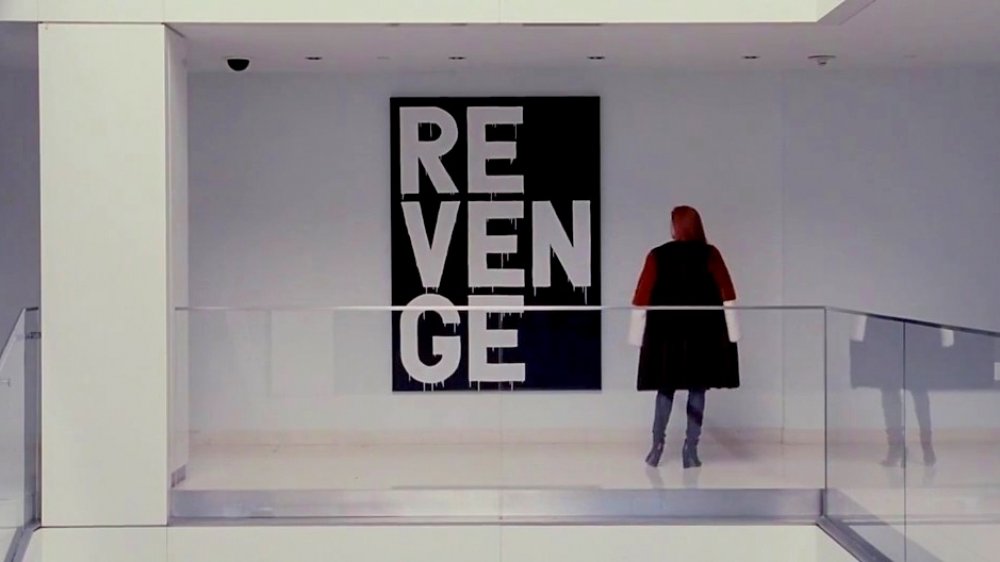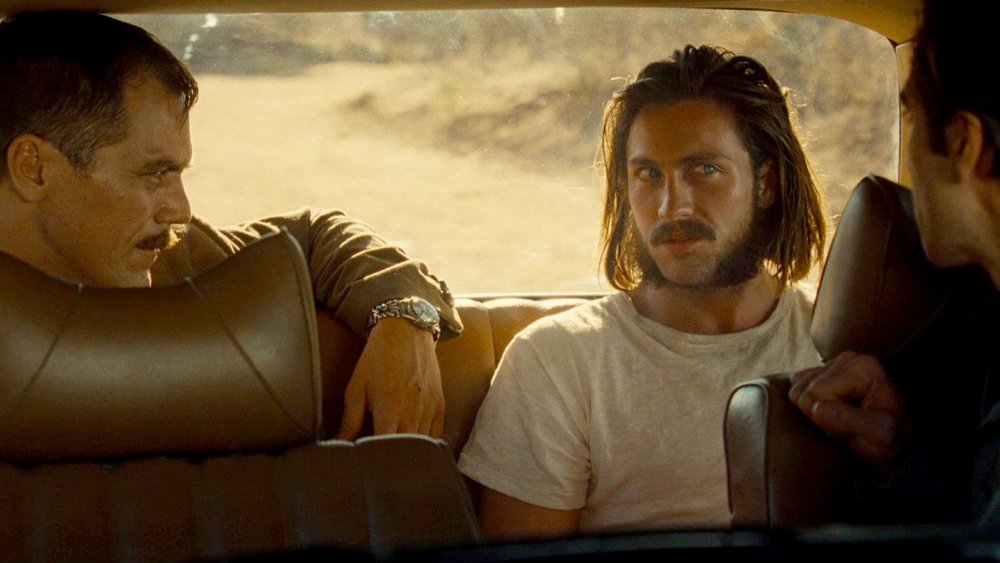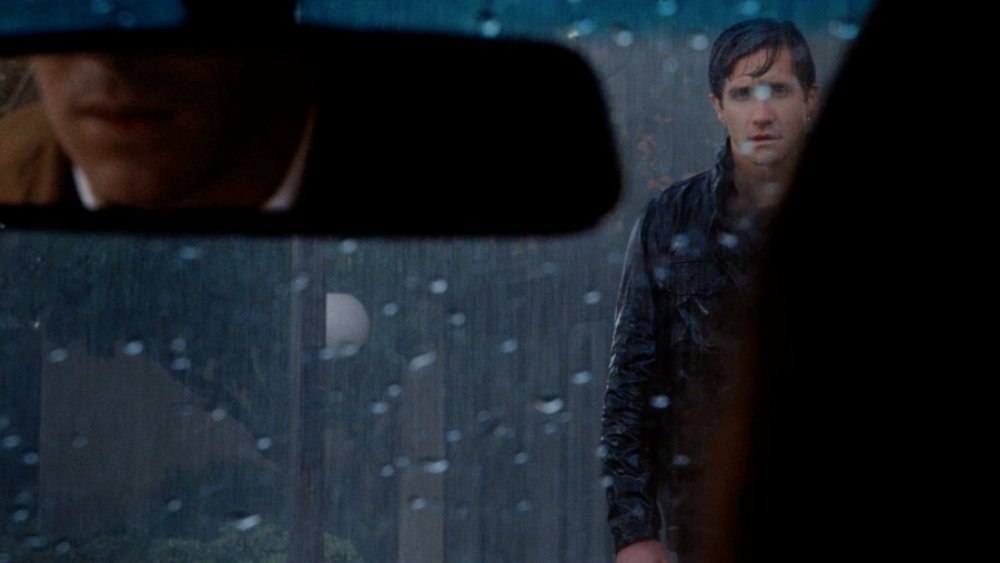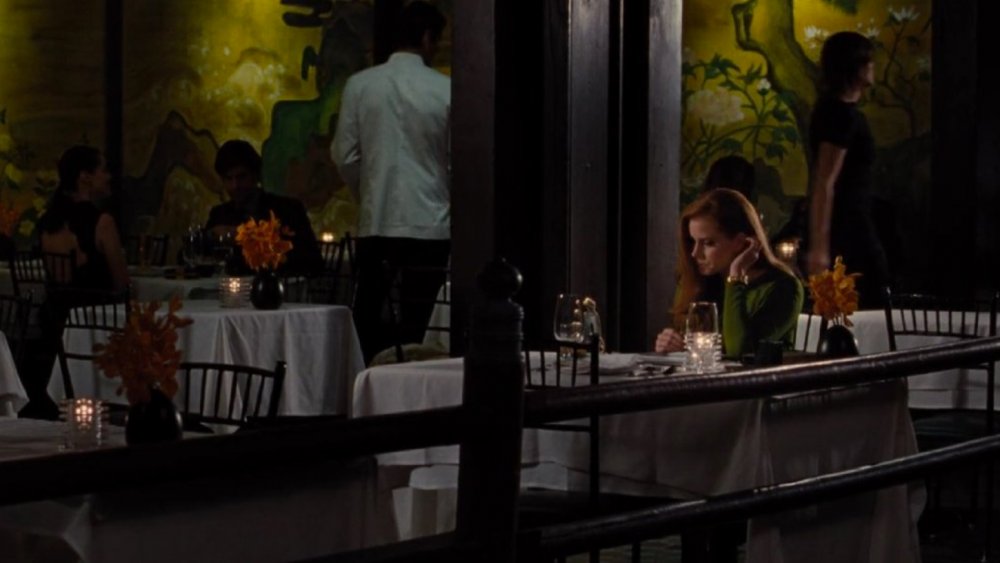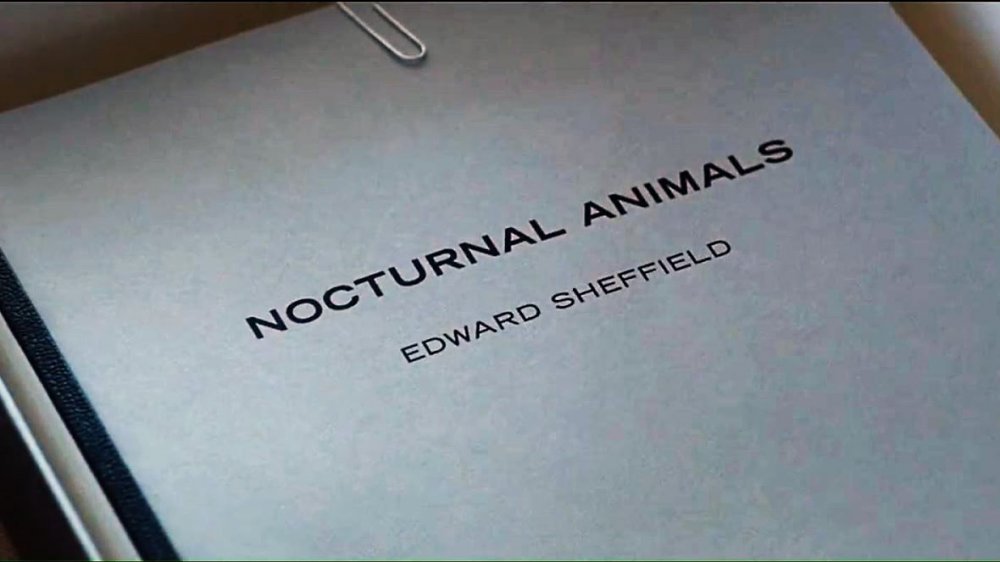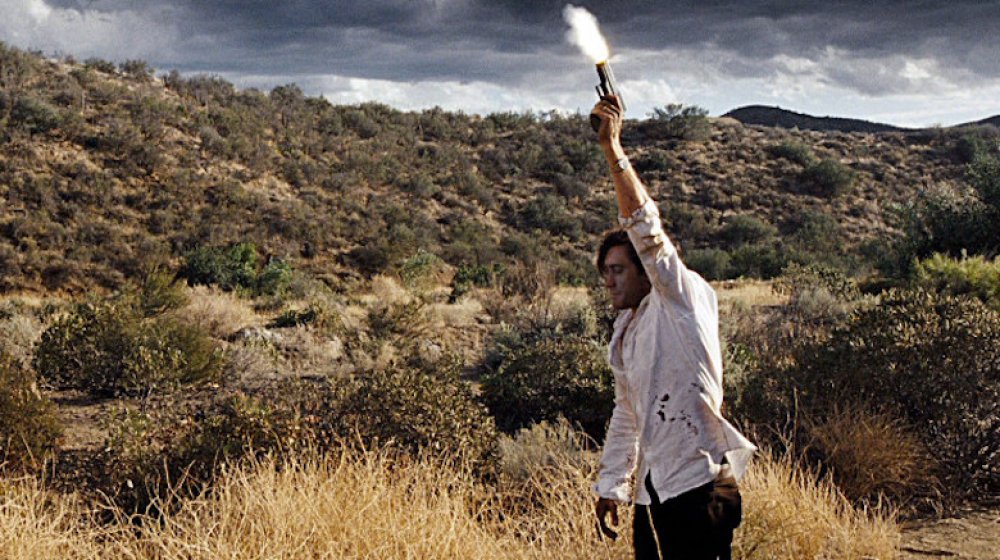The Ending Of Nocturnal Animals Explained
Tom Ford's Nocturnal Animals is a bleak portrait of infidelity and trauma. Based on the novel Tony and Susan by Austin Wright, the film takes place in Los Angeles and Texas rather than the woods of New England, but still follows the book's arc of emotional apocalypse. Amy Adams stars as Susan Morrow, an unhappy art gallery owner. Armie Hammer embodies old money chic as her husband Hutton, despite the fact that he is quietly going bankrupt. Jake Gyllenhaal plays a dual role as Susan's writer ex-husband Edward Sheffield, and the protagonist within Edward's novel, Tony Hastings. Michael Shannon received a best supporting actor nomination from the Oscars for his turn as Bobby Andes, the detective in Edward's book helping solve the murder of Tony's family. A perfectly chilling Aaron Taylor-Johnson rounds out the cast as the psychopathic Ray Marcus, who terrorizes the Hastings family.
Alternating between Susan's past and present as she reads the disturbing novel her estranged ex-husband has dedicated to her, Nocturnal Animals opens as provocatively as it closes, with an entire grim world exposed in between. This is the ending of Nocturnal Animals explained.
Susan Morrow's opening night
Nocturnal Animals opens with a controversial sequence featuring plus-sized women dancing naked in majorette hats and boots. The camera pans back to show that the performance is actually video being displayed on art gallery walls. Within the gallery itself, the dancers lie as if they are dead on platforms throughout the space.
This is opening night for gallery owner Susan Morrow's newest show, and even though the exhibit is packed, she is miserable. Not even her stunning Hollywood home consoles her. The next morning, Susan receives a package from her ex-husband of 19 years, Edward Sheffield. Inside is a manuscript for his new novel, Nocturnal Animals. Edward's note, read aloud by Susan's butler, says the book isn't like what he wrote when they were together. "In the end," he intones, "you left me with the inspiration to write from the heart. I wanted you to be the first to read it."
Shortly after, Susan's husband Hutton appears. Susan is upset he didn't come to her opening. Hutton acts like he doesn't know who Edward is, or that he is a writer — both lies. Susan tells him she tried to get in touch with Edward years before, but he hung up on her. She looks mildly hopeful that Edward's book might signify amends.
A very special dedication
Susan and Hutton attend a dinner party at their friend Alessia (Andrea Riseborough) and Carlos' (Michael Sheen) art-filled house. Alessia is concerned about Susan, and hints that Susan had a breakdown recently, during which she confessed a number of embarrassing details about her marriage. Susan is standoffish with Alessia, and Hutton leaves for New York before dinner. Carlos tells Susan her opening was spectacular. She doesn't agree, and calls herself a "fraud."
At home, Susan discovers that Nocturnal Animals is dedicated to her. A look of hope crosses her face. Edward's novel is the story of Tony, Laura, and India Hastings, who are road-tripping to Marfa, Texas. Tony and Laura are very much in love, while India is a sullen teen glued to her phone. Late one night, they are run off the road by three violent thugs: Ray, Turk, and Lou. After a harrowing encounter in which Ray and his comrades verbally and then physically assault the Hastings family, Ray and Turk kidnap Laura and India in Tony's car. Tony can do nothing but watch as his family is taken away screaming.
Susan, distraught at what she's just read, calls her husband for comfort and finds out he's with another woman. She pretends not to notice and returns to Edward's book.
The plot thickens
Lou forces Tony Hastings to drive Ray's car into the middle of nowhere, dumping him at the end of a dirt road. It's pitch black, so when Lou and Ray come back for Tony, they can't find him, and ultimately take off. The next morning, Tony walks along the highway and finally comes across a house. Police pick him up, and Detective Bobby Andes helps him trace his steps back to where he'd been left for dead. They find the bodies of his wife and daughter, naked and wrapped in each others' arms on a plush velvet couch.
India Hastings reminds Susan of her own red-headed daughter Samantha, and she gives the girl a panicked call. Samantha's fine, though Susan can't see she's lying in bed naked, just as India was in the book.
After hanging up with Samantha, Susan has a flashback to running into Edward in New York. Edward is trying to get into Columbia University's writing program, where Susan is already getting her degree in art management. "I'm too cynical to be an artist," she tells him. They proceed to reminisce about how they both had crushes on each other back home in Texas. The audience realizes that the Hastings family in Edward's book is named after the town Susan and Edward grew up in.
A mother's early warnings
It is revealed that Laura died of a fractured skull, while India had been suffocated. Detective Andes is able to identify the nearby trailer where it all happened.
A horrified Susan recalls a dinner with Anne (Laura Linney), her posh mother. Anne does not approve of Susan marrying Edward, as she believes he'll never be able to materially provide for her. "Don't do it," Susan remembers her mother warning her, "You'll regret it. The things you love about him now, you'll hate in a few years." Susan disagrees in the moment, but since we know Susan and Edward ultimately divorce, we can see that her mother is right in retrospect.
In the present day, Susan emails Edward, telling him the book is "devastating" and she is "deeply moved." She'd like to meet on Tuesday for drinks. "Much to say," she writes, and signs the email, "Love, Susan."
She can't stop thinking about the book, or Edward. She relives a conversation with Edward, in which he describes writing as the closest thing to immortality. It's clear that Nocturnal Animals is beautifully written to be having this kind of impact on Susan. She thinks it's a good sign that he chose to share the story with her first. She'll soon find out how wrong she is.
Paintings from nowhere
Detective Andes sends Tony pictures of Turk, but unfortunately, a traumatized Tony can't recognize him. A year passes and a now clean-shaven Tony is notified that Andes finally has a lead: Turk was killed in a robbery, and Lou has been captured. Tony identifies Lou as the man who held him. Lou insists he didn't do it, but he's charged with murder anyway.
At her gallery, Susan is consumed with thoughts of Edward. She tells her assistant about the book, how it's dedicated to her, and also how Edward used to call her a "nocturnal animal," as she's always had trouble sleeping. Susan says she loved Edward deeply, and that she did something unforgivable to him.
Later, Susan is mesmerized by a typography piece on the wall of her gallery, which depicts the word "REVENGE." She can't remember buying it. Susan is on the verge of understanding the depth of pain she caused Edward and the lengths to which he has gone to pay her back. You almost feel sorry for her ... until her board meeting. She is casually cruel and dismissive to her colleagues, especially to one struggling with botched plastic surgery. Any sympathy we might have felt for Susan vanishes.
Approaching the book's conclusion
Back in Nocturnal Animals, Detective Andes and Tony Hastings go after Ray for "informal questioning." Ray is a calculating psychopath. He insists he didn't do anything and plays innocent so convincingly, we almost begin to doubt Tony's memories — but every so often, Ray's eyes indicate the truth. Tony wants to know about his family's last minutes. Ray is itching to tell him, but doesn't.
As the book ratchets up, Susan has another flashback, this time to a vicious fight between her and Edward after she didn't like his first novel. She's terribly mean, saying he should write about something other than himself, taunting him for wanting to work in a bookstore while writing books. "You sound like your mother," Edward says, heartbroken. For the first time, Susan doesn't disagree with him. Susan also remembers flirting with Hutton shortly afterwards.
Back in the novel, Tony finds out Andes is dying of lung cancer. They discover that, thanks to some legal loopholes, Ray Marcus has been let go for lack of evidence. Andes and Tony decide to go rogue and find Ray themselves.
Violent confrontation
Susan flashes back to her painful breakup with Edward. He begs her to stay, arguing,"When you love someone you work it out ... You might never get it back."
In Edward's book, Andes and Tony abduct Ray and Lou. After several violent altercations, the criminal pair make a break for it. Andes kills Lou in cold blood. As Susan reads the gunshot, a bird flies into her glass window, dead.
Susan flashes back to getting an abortion. Though the pregnancy is the result of liaison with Edward, she goes to the clinic with Hutton. While he comforts her in the car, Susan sees a pained Edward watching them.
In the book, Tony Hastings is beside himself at Lou's death. "I'm glad that you shot him! I'm glad that he's dead," he screams, but then breaks down in grief over his wife and daughter. Andes and Tony split up to find Ray. Tony finds him in the trailer where he raped and murdered his beloved Laura and India. After much toying, Ray admits the disgusting things he did and his complete lack of regret. As Tony finds the resolve to shoot him, Ray reveals a fire poker he'd hidden under a pillow.
A long-awaited reunion
In the grand finale of Edward's book, Tony shoots Ray as Ray hits him with the iron poker. Tony wakes up blind — the poker has severed his optic nerve. Ray bled to death overnight. Tony stumbles from the trailer, shooting his gun in the air to alert Andes. The force of the gunshot makes Tony stumble, and the gun goes off in his stomach. Tony slowly dies.
As Susan reads this devastating ending, she whispers Edward's name. She sees an email confirming her date with Edward and goes to sleep cradling her phone.
The next day, Susan wakes up happy. She's fallen in love with Edward again, and even though she didn't believe in his writing before, she certainly does now. She dons a beautiful green dress and heads to the restaurant to wait for him.
By her second whiskey, Edward still hasn't shown. We watch Susan's face harden once more into a mask of sadness. She finally understands the book as an elaborate act of revenge, and that dedicating it to her wasn't a compliment. She knows now that he'll never forgive her, and the book is a pointed message about just how thoroughly she devastated him. The screen goes dark on Susan's face as she tries not to cry in public.
Vengeance as justice, art as revenge
In Edward's novel, the only justice available to Tony Hastings is vigilante revenge. But as is the case in real life, vigilante justice is always more brutal and sad than one anticipates. Edward's novel and his real-world act of revenge display this truth fully.
In the world of the movie, Edward's revenge is creating a beautiful and disturbing work of art that proves his considerable creative talent to the woman who didn't believe in him. This revenge runs fascinatingly parallel to the revenge of the novel, linked by their terrible, hopeless endings. One of the most painful moments of the entire film is watching Susan stare at the "REVENGE" painting, unable to grasp why it's unsettling her so deeply. She's so caught up in her narcissism and her memories of how well Edward once thought of her that it takes getting stood up in person to fully comprehend the depths of his anger.
Like Tony's revenge in the novel, Edward's revenge is utterly complete and absolutely gutting.
Reverting to type after rebellion
Even though Edward once saw Susan very differently than she sees herself — she insists she's a cynical pragmatist, while he sees her as an untapped well of creativity and kindness — it's clear some of his vision transferred over to her. She feels incapable of artistry, but at the same time, still seems to think that if only conditions were different, she really could have been an artist. The reality is that Susan is the very definition of a sellout, not just as a gallery owner whose exploitative art caters to a specific high-end crowd, but also in matters of the heart.
Edward once commented to Susan that she and her mom have the same sadness in their eyes. Susan maintained she would never be like her mother. But a particularly wrenching moment in Nocturnal Animals says otherwise. "Just wait," Anne warns her daughter, "we all eventually become our mothers." Boy, was she ever correct. Susan leaves a sweet, sensitive, creative man with a good heart for a philandering, self-absorbed, and materialistic jerk. Her self-concept is totally incorrect: She could have been an artist if she'd really wanted to, and she did a terrible thing to Edward that she will never be able to justify.
The past is ever present
One of the core themes of Nocturnal Animals is that the past is never really quite through with us. Tony Hastings lives his life for a year before finding out that the men who hurt his wife and daughter are back on the radar. He could move on, but instead, he spirals into violence until he winds up dead.
Edward, similarly, never gets over his idealized vision of Susan. In his book, he has to metaphorically kill her (and their potential child) as well as himself, in order to be rid of what she did to him. His book isn't just a revenge novel, it is an exorcism that seems to have worked. But clearly, the sweet Edward that Susan once knew has also been demolished after putting their story on paper. He is free of her, but at a terrible cost.
For Susan, cycles of infidelity continue — except this time, she's the one being left, not the leaver. As Susan reflects on her terrible choices and how they led her down a path of overwhelming sadness, she realizes the damage she's wrought lives on. Trauma has fossilized, and she has to find new ways to carry the load now that she knows absolution is not part of her story.
